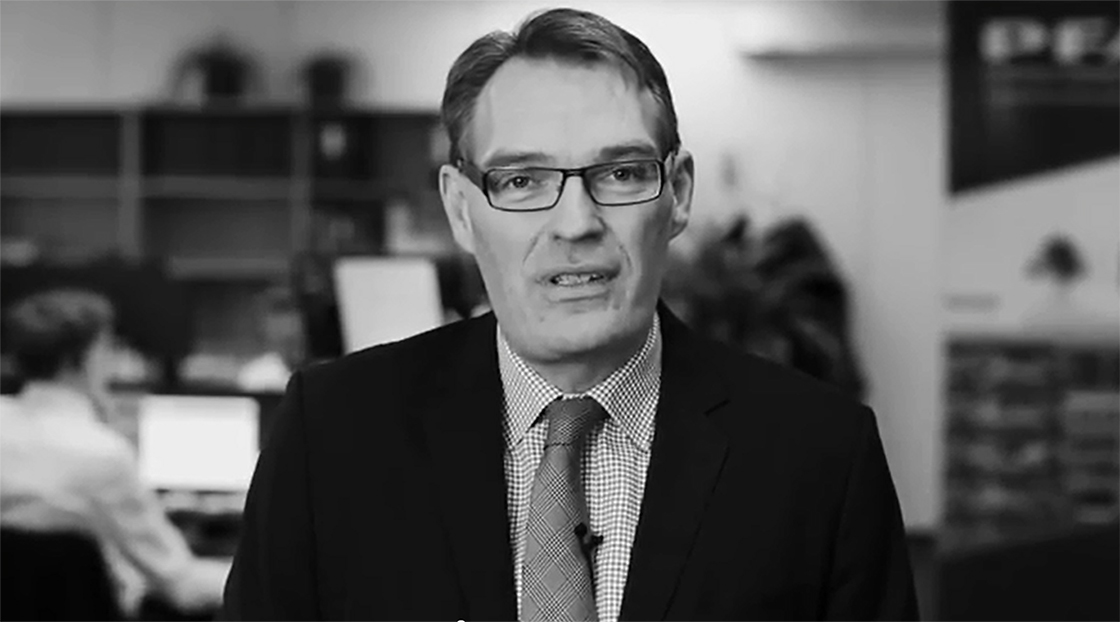Understand the share crisis in five minutes

The Chinese share prices have dropped rapidly, and the decline has spread to stock exchanges all over the world. PFA’s two experts, Carsten Holdum, Consumer Economist, and Henrik Henriksen, Chief Strategist, here explain the current situation on the share market and what it means to your pension return.
The share markets have taken a significant dive in recent days, and this has affected the return on the market rate plan PFA Plus. However, PFA’s investment expert Henrik Henriksen explains that there is still reason to stay calm, because these kinds of fluctuations are a fact of life when you have a market rate plan. Below, he gives a brief explanation of the financial unrest and what it means to your pension.
Shares were seriously challenged during August
After approximately a month of unrest on the Chinese share markets, the nervousness spread to other countries from the mid-August and brought a large fall in share prices with it.
“From 19 to 24 August, there was a free fall for four days in a row on the global share markets. This is related to the fact that, last week, China decided to devalue their currency against the dollar. This created uncertainty about China’s future growth potential and resulted in very steep drops in the share markets,” Henrik Henriksen says.
He adds that the world has not seen a corresponding fall in the share markets since 2011, and that the crisis reflects China's increasing global financial influence:
“Today, China is the world’s second largest economy, and, therefore, negative expectations to the Chinese growth can generate fear of a global growth crisis. This is the fear we have experienced in recent days”.
Lower – but still positive pension returns
During the share crisis, domestic Chinese shares dropped by up to 40 per cent in just a few weeks. PFA has only invested in relatively few Chinese shares (approximately 0.5 % of the total assets), but PFA’s investments are affected by the large drops in the global share markets triggered by the unrest in China.
“On Friday 21 August and Monday 24 August, there were extremely large drops on the global share markets, and this affected PFA’s and thereby the customers’ return. At the time of writing, it seems the return will be much lower than anticipated earlier this year. In spite of the price drops, however, there are still positive returns for the year so far in all of PFA's investment profiles, also the ones with high risk and many shares," Henrik Henriksen explains.
What we expect in the future
As a result of the share crisis, the Chinese have lowered the interest rates, reduced the requirements for the bank reserves (in order for them to lend more money) and made it easier for the national pension companies in China to buy shares. At the same time, there are relatively positive signs for the economies of other countries, which indicates a more stable development in the investment markets - but this could take a while.
“I think these initiatives will have a positive effect on the share markets. When the central banks panic and lower the interest rate, as we have seen in China, it usually means that the share markets calm down. This will have a favourable effect on the pension savings. It will require both a stabilisation of the Chinese share market and some positive financial figures before the situation can settle down,” the chief strategist says.

Pension is a long-term investment
Your pension savings are long-term, which means that, as a rule, you should not change your investment profile or make other investment selections on your pension plan during financial turbulence. The higher the risk is on your investment profile, the more shares it includes, and the bigger the fluctuations of your returns will typically be, both when negative and positive, PFA Pension’s consumer economist explains and elaborates:
“In general, high risk profiles have generated the highest returns in recent years, but they are also the ones that tend to take the deepest plunge when the shares are on a downward slide. Therefore, it is important to stay calm and wait for the development to go in the other direction.”
Carsten Holdum adds that customers who are closer to retirement will experience smaller fluctuations than the ones who have many years left of their working life. This applies to all investment profiles.
“In PFA Plus, the risk is phased out in all investment profiles as you approach retirement. That way, you will not experience as large fluctuations when you are close to retirement, where you need more financial security and certainty of the size of your pension,” Carsten Holdum says.
Precisely because the risk of your investment profile is regularly adjusted to your age, you do not need to relate to your profile on a regular basis. You only need to think about it if your financial situation has changed or if you are unsure if your current profile is the right one for you.
Get help with selecting an investment profile
You can get help with choosing an investment profile by going through PFA's Investment Guide, which you find under “My Investments” after logging onto My PFA using your NemID.